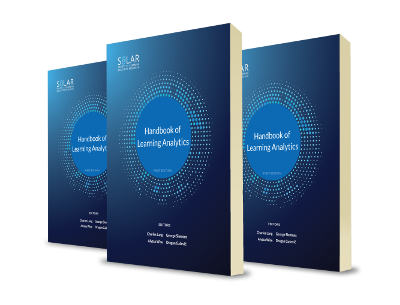Predictive Modelling of Student Behavior Using Granular Large-Scale Action Data
Tang, S., Peterson, J., and Pardos, Z. (2017). Predictive Modelling of Student Behaviour Using Granular Large-Scale Action Data. In Lang, C., Siemens, G., Wise, A. F., and Gaevic, D., editors, The Handbook of Learning Analytics, pages 223–233. Society for Learning Analytics Research (SoLAR), Alberta, Canada, 1st edition.
Abstract
Massive open online courses (MOOCs) generate a granular record of the actions learners choose to take as they interact with learning materials and complete exercises towards comprehension. With this high volume of sequential data and choice comes the potential to model student behaviour. There exist several methods for looking at longitudinal, sequential data like those recorded from learning environments. In the field of language modelling, traditional n-gram techniques and modern recurrent neural network (RNN) approaches have been applied to find structure in language algorithmically and predict the next word given the previous words in the sentence or paragraph as input. In this chapter, we draw an analogy to this work by treating student sequences of resource views and interactions in a MOOC as the inputs and predicting students’ next interaction as outputs. Our approach learns the representation of resources in the MOOC without any explicit feature engineering required. This model could potentially be used to generate recommendations for which actions a student ought to take next to achieve success. Additionally, such a model automatically generates a student behavioural state, allowing for inference on performance and affect. Given that the MOOC used in our study had over 3,500 unique resources, predicting the exact resource that a student will interact with next might appear to be a difficult classification problem. We find that the syllabus (structure of the course) gives on average 23% accuracy in making this prediction, followed by the n-gram method with 70.4%, and RNN based methods with 72.2%. This research lays the groundwork for behaviour modelling of fine-grained time series student data using feature-engineering-free techniques. Z. (2017). Predictive Modelling of Student Behaviour Using Granular Large-Scale Action Data. In Lang, C., Siemens, G., Wise, A. F., and Gaevic, D., editors, The Handbook of Learning Analytics, pages 223–233. Society for Learning Analytics Research (SoLAR), Alberta, Canada, 1st edition.










